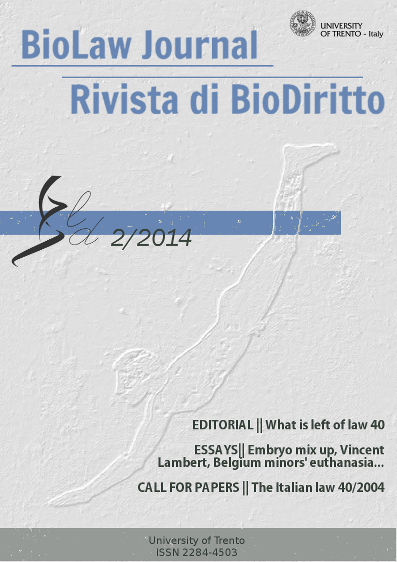Quando il desiderio di avere un figlio diventa un diritto: il caso della legge n. 40 del 2004 e della sua (recente) incostituzionalità
DOI:
https://doi.org/10.15168/2284-4503-32Parole chiave:
gametes’ donation, Italian Constitutional Court, medically assisted reproduction, right to have a child, protection of embryosAbstract
The essay aims at exploring the social, cultural context and the political debate related to the Italian law on medically assisted reproduction (no. 40/2004); it is also offered a framework of the many “judicial misfortunes” that have progressively eroded the crucial points of the legislation. The prohibition of gametes’ donation (art. 4, c.3), recently repealed by the Constitutional Court (judg. no. 162/2014), will be carefully considered, dealing with the scenarios that this repeal opens. This paper will analyse the core of the reasons which led to introduce such a ban, trying to compose its outcomes with the reasons that have advocated its repeal; moreover, it will be highlighted that, despite the “warning” of the Court on the risk of a regulatory vacuum as a result of this verdict, the lifting of the ban involves some legal difficulties in application of the new legal framework. On the other hand, a particularly complex profile consists in the moral implications of the issue, which have accompanied the path of the law no. 40 since its genesis, causing its ideological and practical contradictions.





